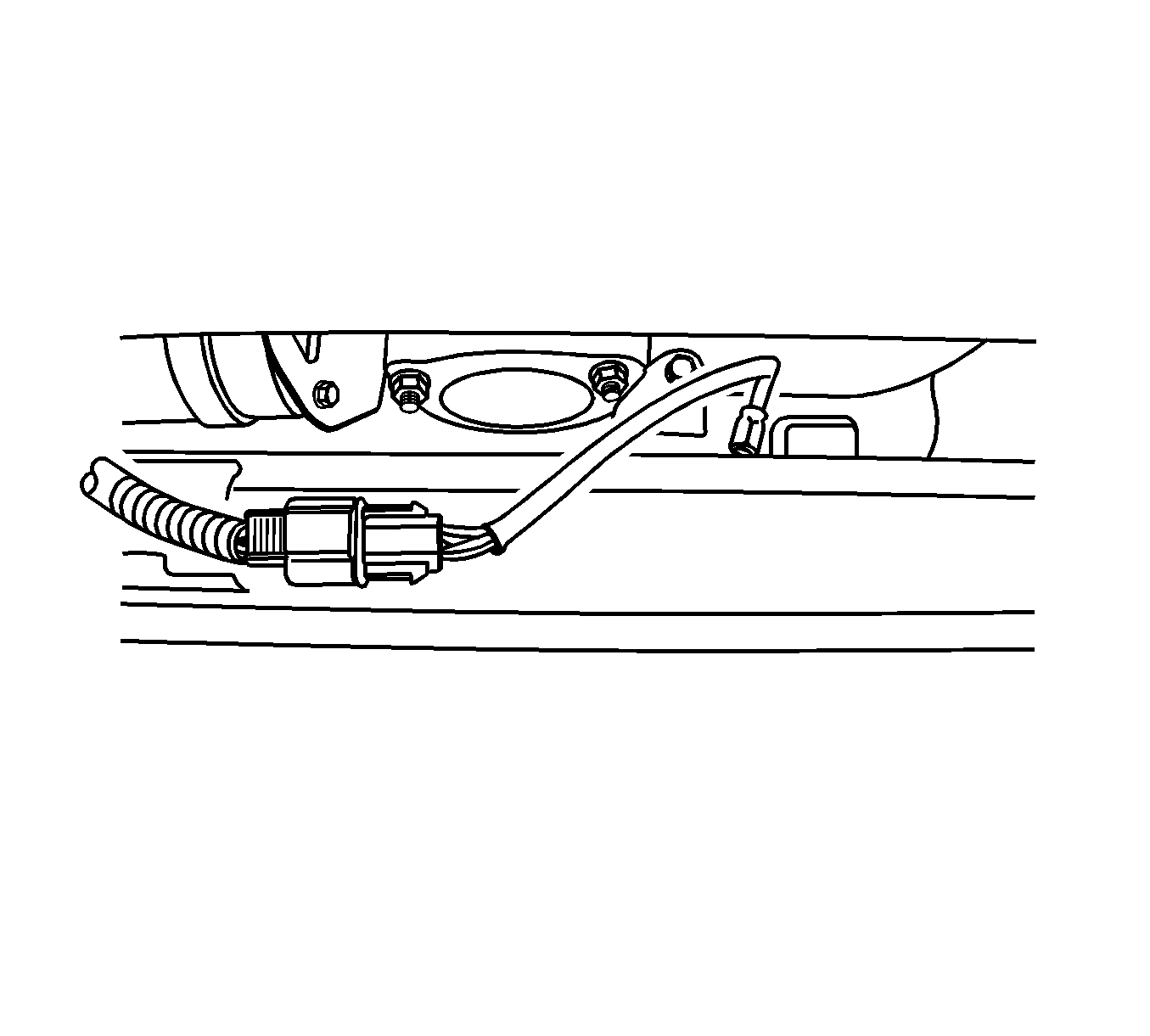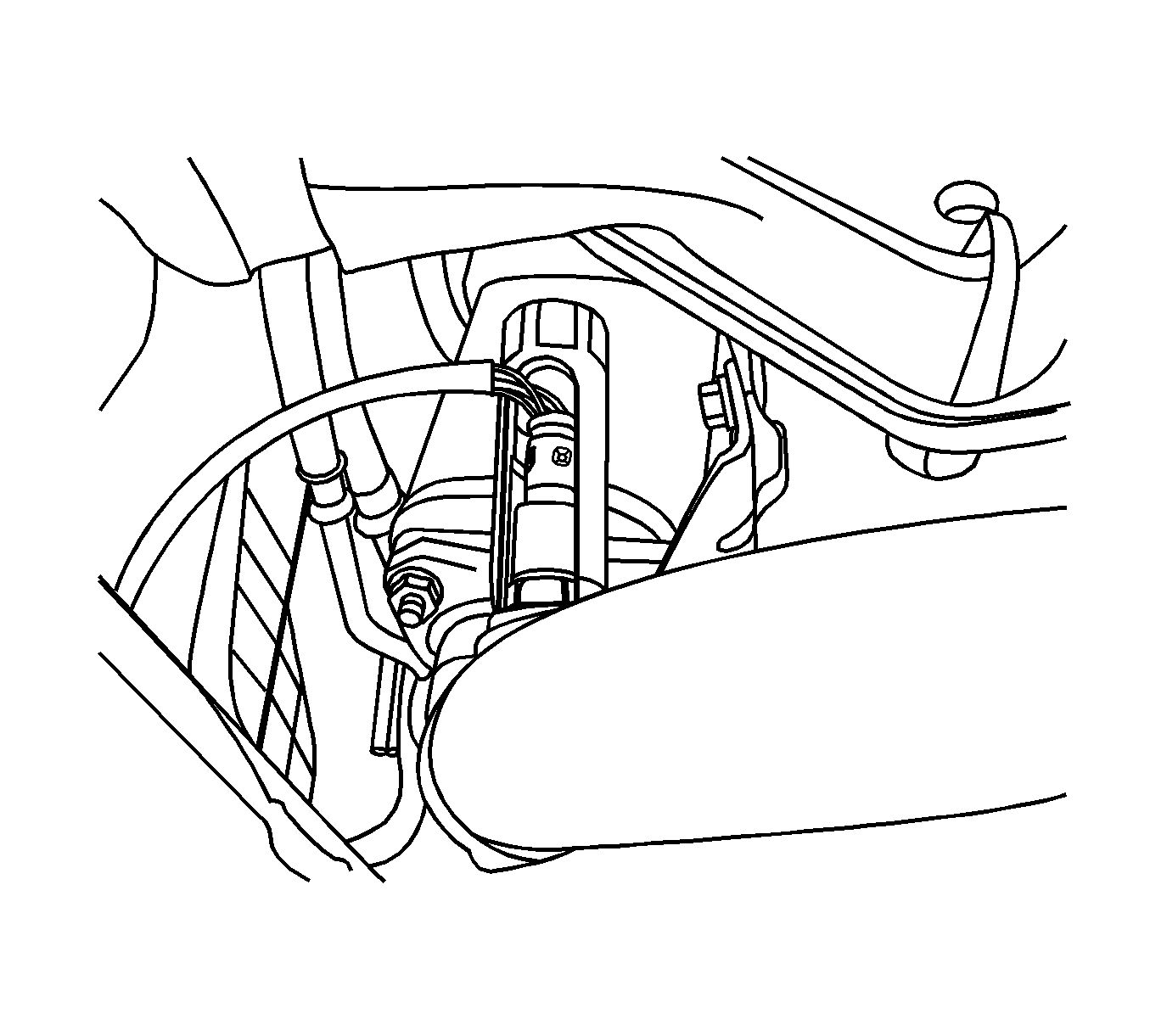Special Tools
DW-170-010 Oxygen Sensor Remover/Installer
Removal Procedure
- Disconnect the negative battery cable.
- Disconnect the rear heated oxygen sensor connector.
- Using the DW-170-010 , carefully remove the rear heated oxygen sensor.
Warning: Refer to Battery Disconnect Warning in the Preface section.

Caution: Do not remove the pigtail from either the heated oxygen sensor (HO2S) or the oxygen sensor (O2S). Removing the pigtail or the connector will affect sensor operation.
Handle the oxygen sensor carefully. Do not drop the HO2S. Keep the in-line electrical connector and the louvered end free of grease, dirt, or other contaminants. Do not use cleaning solvents of any type. Do not repair the wiring, connector or terminals. Replace the oxygen sensor if the pigtail wiring, connector, or terminal is damaged. This external clean air reference is obtained by way of the oxygen sensor signal and heater wires. Any attempt to repair the wires, connectors, or terminals could result in the obstruction of the air reference and degraded sensor performance. The following guidelines should be used when servicing the heated oxygen sensor:| • | Do not apply contact cleaner or other materials to the sensor or vehicle harness connectors. These materials may get into the sensor causing poor performance. |
| • | Do not damage the sensor pigtail and harness wires in such a way that the wires inside are exposed. This could provide a path for foreign materials to enter the sensor and cause performance problems. |
| • | Ensure the sensor or vehicle lead wires are not bent sharply or kinked. Sharp bends or kinks could block the reference air path through the lead wire. |
| • | Do not remove or defeat the oxygen sensor ground wire, where applicable. Vehicles that utilize the ground wired sensor may rely on this ground as the only ground contact to the sensor. Removal of the ground wire will cause poor engine performance. |
| • | Ensure that the peripheral seal remains intact on the vehicle harness connector in order to prevent damage due to water intrusion. The engine harness may be repaired using Packard's Crimp and Splice Seals Terminal Repair Kit. Under no circumstances should repairs be soldered since this could result in the air reference being obstructed. |

Caution: The oxygen sensor may be difficult to remove when the engine temperature is below 48°C (120°F). Excessive force may damage threads in the exhaust manifold or the exhaust pipe.
Installation Procedure
- Coat the threads of the rear oxygen sensor with anti-seize compound, if needed.
- Using the DW-170-010 , install the rear heated oxygen sensor into the exhaust front pipe.
- Connect the rear heated oxygen sensor connector.
- Connect the negative battery cable.

Note: A special anti-seize compound is used on the oxygen sensor threads. This compound consists of a liquid graphite and glass beads. The graphite will burn away, but the glass beads will remain, making the sensor easier to remove. New or serviced sensors will already have the compound applied to the threads. If a sensor is removed from any engine and is to be reinstalled, the threads must have an anti-seize compound applied before reinstallation.
Caution: Refer to Fastener Caution in the Preface section.
Tighten
Tighten the rear heated oxygen sensor to 50 N·m (37 lb ft).

